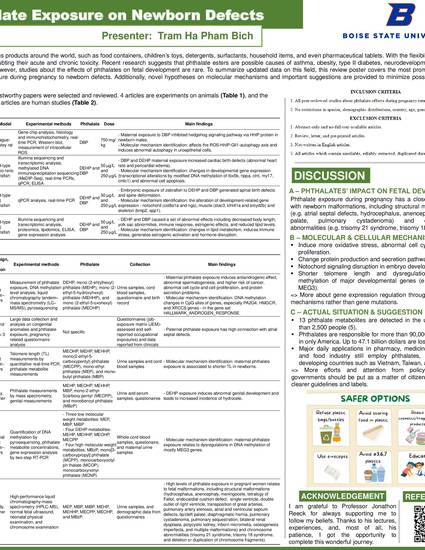
Phthalates, or phthalate esters, are employed in the making of numerous products around the world, such as food containers, children’s toys, detergents, surfactants, household items, and even pharmaceutical tablets. With the flexibility, elasticity, and inexpensive price, companies started using phthalates without doubting their acute and chronic toxicity. Recent research suggests that phthalate esters are possible causes of asthma, obesity, type II diabetes, neurodevelopmental issues, heart diseases, cancer, and especially reproductive system issues. However, studies about the effects of phthalates on fetal development are rare. To summarize updated data on this field, this review poster covers the most prominent in vivo studies, both animal models and humans, regarding phthalates exposure during pregnancy to newborn defects. Additionally, novel hypotheses on molecular mechanisms and important suggestions are provided to minimize possible negative outcomes of phthalate applications.
Available at: http://works.bepress.com/jonathon-reeck/13/
